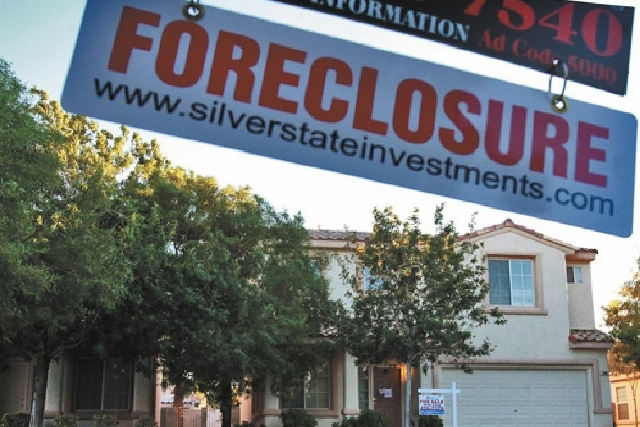Nevada Supreme Court ruling upholds nonjudicial foreclosure process
CARSON CITY — The Nevada Supreme Court ruled Thursday that a nonjudicial foreclosure process used by investors and speculators to acquire HOA properties at bargain basement prices during the great recession does not violate the constitutional protections of original mortgage holders.
The court found that the process does not violate the Takings Clauses of the U.S. and Nevada constitutions. It also found that due process rights were not violated because the foreclosure process does not constitute a state action.
The ruling is significant for thousands of individuals and groups in Las Vegas that acquired foreclosed homes at a fraction of their value by paying off the super-priority liens held by homeowners associations.
The Nevada Supreme Court had previously ruled that paying off the superpriority lien held by an HOA extinguished all other pre-existing liens, including the original mortgage. The unanimous ruling issued Thursday affirms that prior decision.
Attorneys for the parties were not immediately available for comment.
The case involved a home acquired by Saticoy Bay LLC Series 350 Durango 104 for $6,900 in back association dues and related costs in 2013. The foreclosure sale by the HOA Angel Point Condominiums came when the original owners fell behind on their association dues.
Wells Fargo Home Mortgage had loaned the original owners just under $82,000 in 1997 for the purchase of the condominium.
The sale extinguished the mortgage held by Wells Fargo.
Saticoy sought a ruling in Clark County District Court that it was the owner of the property. But District Court Judge Ronald Israel ruled for Wells Fargo finding the Nevada foreclosure statute violated the state and U.S. Constitutions.
The Supreme Court, in the decision written by Justice Ron Parraguirre, reversed the lower court decision and remanded the case for further proceedings.
“The state did not physically invade any property interest, nor did it participate in the HOA’s nonjudicial foreclosure,” he wrote.
As a result, it is not a governmental taking, Parraguirre said.
The Nevada Supreme Court decision is at odds with a recent ruling by the 9th Circuit Court of Appeals in a different Nevada case that found in a 2-1 ruling that the state process does violate constitutional protections.
The different decisions will now have to be reconciled.
The dispute over the foreclosure sales dates to the foreclosure crisis that began in 2008. The law was changed by the Nevada Legislature in 2015 going forward to resolve the notice issue and other concerns.
The stakes are huge for those who acquired an estimated 2,000 to 3,000 properties by paying off HOA super-priority liens. A number of real estate investors adopted a strategy of paying off the super priority lien with the expectation that the first mortgage then would be extinguished, creating a financial windfall for many of the speculators.
Because of the legal disputes and questions over ownership, none of the properties can be sold because they have clouded titles.
Contact Sean Whaley at swhaley@reviewjournal.com or 775-461-3820. Follow @seanw801 on Twitter.
RELATED
Nevada retains high rank in foreclosures
Nevada Supreme Court hears case on real estate crisis foreclosure sales
Nevada remains among top three foreclosure states




























